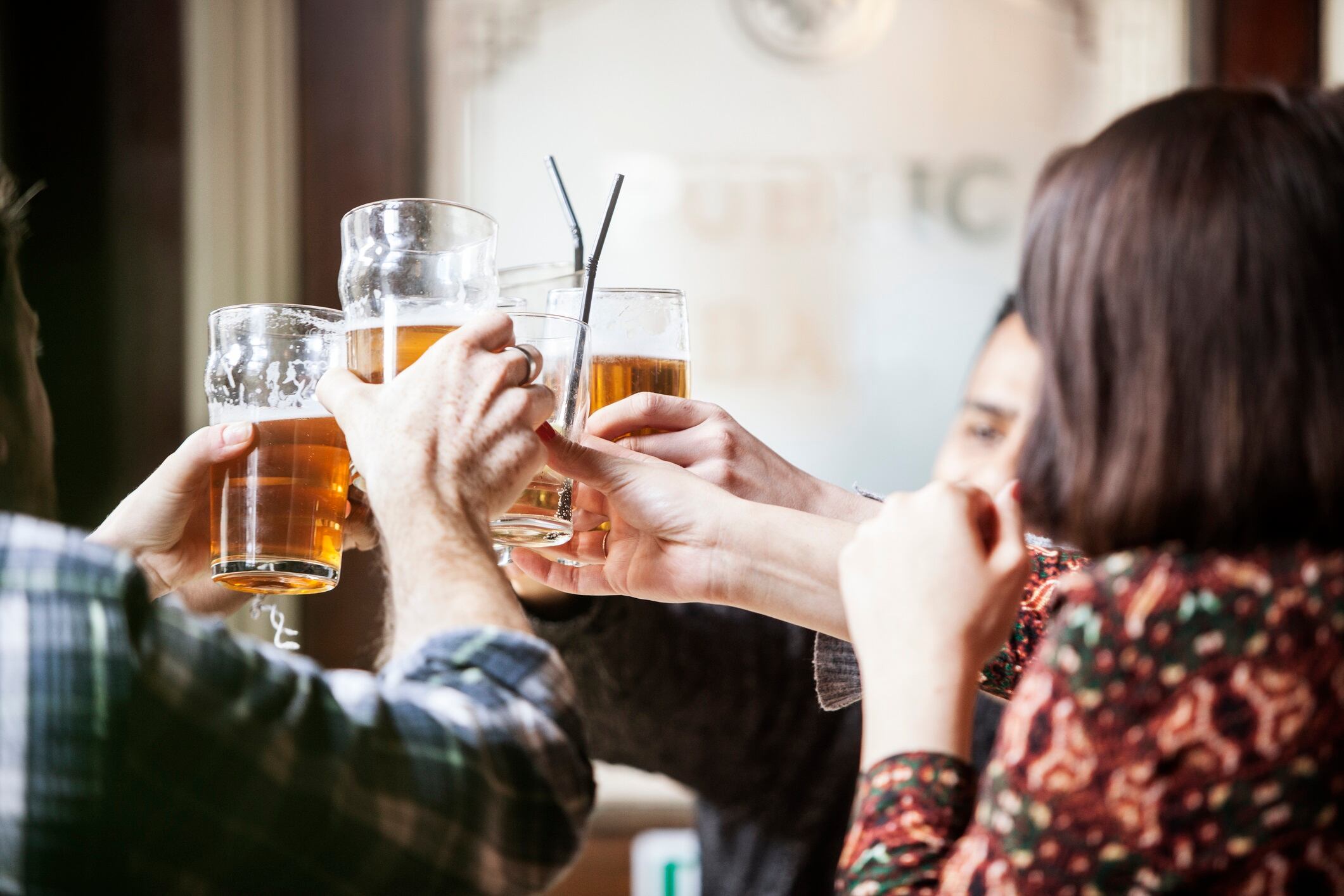The popularity of GLP-1 drugs, including Ozempic and Wegovy, is rampant. In fact, they now boast an estimated market value of $47.4bn, according to Markets and Markets. GLP-1’s value is also projected to grow to an eyewatering $471.1bn by 2032 – that’s a CAGR of 33.2%.
The trend is unstoppable. But it’s not just consumers following its success - manufacturers are working fast to create food and beverage products which serve people taking GLP-1 drugs.
“Brands can provide tailored products for people who are using GLP-1 drugs, including small servings of fitness formulations and products that relieve the drugs’ common gastrointestinal side effects,” says Jennifer Zegler, director of food and drink at Mintel.
Now, research from Henry Ford Health, has found that weight-loss drugs, including GLP-1, could also impact alcohol consumption.

Could GLP-1 drugs cut alcohol consumption?
A new study, published in JAMA Network Open, has found that using anti-obesity medications (AOM), not only supports weight loss, but could also reduce alcohol consumption.
The study, led by Dr Lisa Miller-Matero at Henry Ford Health, supports the theory that weight-loss medications, could be adapted to reduce alcohol intake.
Researchers examined the drinking habits of 14,000 individuals, who took anti-obesity medication between January 2022 and November 2023.
Alcohol consumption categories
Light
Women: 1-3 drinks per week
Men: 1-6 drinks per week
Moderate
Women: 4-6 per week
Men: 7-14 per week
Heavy
Women: 7+ per week
Men: 15+ per week
Among the approximately 7,500 participants who initially reported alcohol use, around 3,400 reported decreasing their alcohol consumption, with the biggest reduction reported by people originally in the moderate and heavy drinking categories. All types of anti-obesity medication tested, including GLP-1, metformin and bupropion/naltrexone, were associated with reduced alcohol use.
“What was exciting was that those who were drinking at higher, or even what is considered hazardous levels, had a greater likelihood of reducing alcohol use,” says Dr Miller-Matero.
However, she was quick to highlight that further research is required to comprehensively determine if the medications led to decreased alcohol use or if participants changed their drinking habits because they were actively making healthier lifestyle choices at the time.

What does this new GLP-1 research mean for beverage manufacturers?
The launch of weight-loss drugs, such as GLP-1, onto the market has had a major impact on the food industry, with manufacturers scrambling to create products, which meet the nutritional demands of patients.
“As the use of medications to support weight loss continues to rise, we see an opportunity to serve those consumers,” said a spokesperson for food and beverage giant, Nestlé.
And while it’s unlikely there’ll be major shifts in the alcoholic beverage sector, we could see some big changes in the non-alcoholic beverage sphere.
In fact, changes have already begun to take shape, following the steady decline in alcohol consumption over the past decade. A decline, which has primarily been attributed to the growing health and wellness trend.
“When it comes to our physical and mental health, alcohol consumption is an easy win to change,” says Freya Twigden, founder of kombucha brand Fix8 Kombucha and Fibe Prebiotic Soda.
As a result of this change, consumers are embracing a whole host of alcohol-free beverage options, with kombucha, smoothies, protein shakes and cold-pressed juices proving particularly popular.
“Alcohol free options are better than ever,” says Twigden. “We historically didn’t have the choice of something interesting or tasty if we weren’t drinking alcohol, now we truly do.”
And for those who enjoy the flavour of beer, there is also a growing non-alcoholic beer industry, which is proving hugely popular with consumers. So much so that the non-alcoholic market is now valued at $36.8bn USD, according to Statista, and it’s projected to grow at a CAGR of 4.74% over the next five years.
In a nutshell, there are huge opportunities for beverage brands to explore the decline in alcohol consumption, both through new product development and through the expansion of existing non-alcoholic ranges.
What are GLP-1 drugs?
GLP-1, or glucagon-like peptide-1, is a form of medication, which was originally developed to treat type 2 diabetes. Its aim is to mimic the action of the hormone, GLP-1, which is naturally released into the stomach when food is consumed.
GLP-1 drugs work by activating the GLP-1 receptor in the body. They slow gastric emptying, inhibit the release of glucagon, and stimulate insulin production. This slowed gastric emptying helps the patient to feel fuller for longer, therefore reducing food intake and aiding weight loss.
Source: Alcohol Use and Antiobesity Medication Treatment
Published online: 26 November 2024
DOI: 10.1001/jamanetworkopen.2024.47644
Authors: Dr Lisa R Miller-Matero, Dr Hsueh-Han Yeh, Lisiyu Ma et al.




